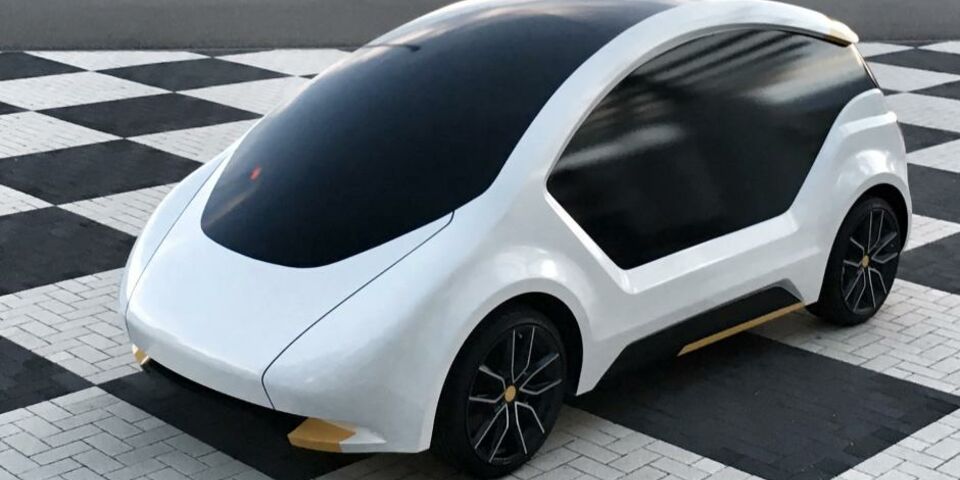TU/e startup Amber Mobility displays ambition
They are nothing if not ambitious: TU/e startup Amber Mobility announced yesterday at the renowned industrial trade fair Hannover Messe that it aims to put a fleet of self-driving cars on Eindhoven's roads by mid 2018. This afternoon Thom Sabel of Amber Mobility unveiled more plans for the future during a Sustainable Energy Talk held in TU/e's Blauwe Zaal.
In a change to the program, it was not CEO Steven Nelemans, formally still a TU/e Automotive student, but marketing man Thom Sabel who talked about the young but ambitious company Amber Mobility. Having arisen out of TU/ecomotive's student team, whose team manager in 2014/2015 was founder Nelemans, this TU/e startup is aiming to conquer the market with electric car-sharing.
Amber announced yesterday that its existing fleet of BMW i3s will be equipped with cameras and a radar system, so that as of next year they can ride around Eindhoven without a driver. Although, initially, only at nights in the empty bus lanes. This announcement, made at Hannover Messe, was picked up straight away by the Dutch online news provider nu.nl, who let co-founder and operational director Joep Sloot (also an Automotive student) speak at length. For Amber, self-driving cars have the advantage of being able to end their nighttime trips wherever is likely to be most convenient for the next customer.
In his ‘SETalk’, Thom Sabel focused on the broad outlines of the concept behind Amber Mobility, whose services incidentally are as yet only available to businesses. Vehicles stand idle on average 23 out of 24 hours, and even in the rush hour only a quarter of the cars in the Netherlands are on the road. So in theory sharing is a much cheaper option, claimed Sabel, especially if the cars in question have a long economic life. Inspired by the cars produced by TU/ecomotive, Amber is therefore working on a car of its own: Amber One, which should be capable of driving 1.5 million kilometers. That seems a lot, says Sabel, but that is because passenger vehicles are built to 'have' and not to use. Buses, on the other hand, he said, do last this long.
Supported by its own smart software, Amber should need only one car per eight users, each of whom would pay 33 euros per week. Would their services also be available in small villages, was a question from the audience. Eventually, yes, said Sabel, but only once the shared car has conquered the larger cities. Starting with the companies that have already signed up as customers, such as ABN-AMRO in Eindhoven, where special parking places with charging posts will be built.
Amber's car-share concept is much more sustainable than everyone having their own vehicle, emphasized Sabel – not insignificant in a talk held as part of program about renewable energy technology.
Were everyone to switch to the shared car, Sabel believes, the number of cars could be reduced by three-quarters.


Discussion